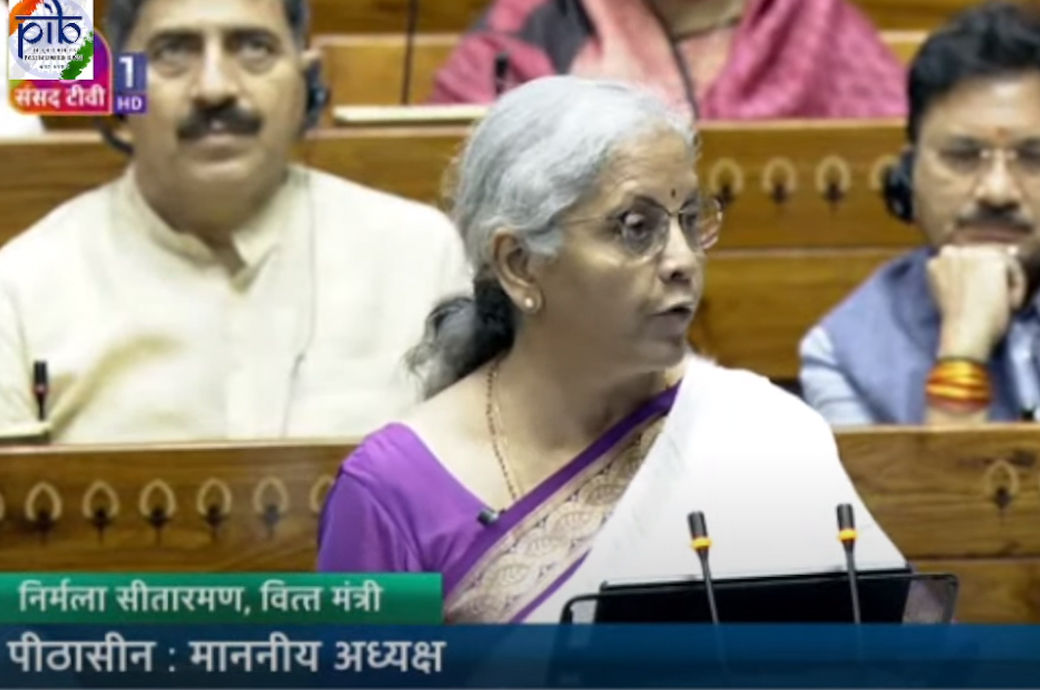
She also announced making additions to the list of exempted goods for manufacture of leather and textile garments, footwear and other leather articles for export.
Further, to rectify inversion in duty, she proposed to reduce BCD, subject to conditions, on methylene diphenyl diisocyanate (MDI) for manufacture of spandex yarn from 7.5 to 5 per cent.
She also proposed to simplify and rationalize the export duty structure on raw hides, skins and leather.
To incentivise skilling, the minister announced a new centrally sponsored scheme, as the 4th scheme under the Prime Minister’s package, for skilling in collaboration with state governments and Industry. Under the scheme, 20 lakh youth will be skilled over a 5-year period. In addition, 1,000 Industrial Training Institutes (ITIs) will be upgraded in hub and spoke arrangements with outcome orientation. Course content and design will be aligned to the skill needs of industry, and new courses will be introduced for emerging needs.
The budget provides special attention to MSMEs and manufacturing, particularly labour-intensive manufacturing. “We have formulated a package covering financing, regulatory changes and technology support for MSMEs to help them grow and also compete globally, as mentioned in the interim budget,” Sitharaman said in her Budget speech in Parliament today.
For facilitating term loans to MSMEs for purchase of machinery and equipment without collateral or third-party guarantee, a Credit Guarantee Scheme will be introduced. The scheme will operate on pooling of credit risks of such MSMEs. A separately constituted self-financing guarantee fund will provide, to each applicant, guarantee cover up to ₹100 crore, while the loan amount may be larger. The borrower will have to provide an upfront guarantee fee and an annual guarantee fee on the reducing loan balance.
In order to revise the assessment model for MSME credit, public sector banks will build their in-house capability, instead of relying on external assessment. They will also take a lead in developing or getting developed a new credit assessment model, based on the scoring of digital footprints of MSMEs in the economy. “This is expected to be a significant improvement over the traditional assessment of credit eligibility based only on asset or turnover criteria. That will also cover MSMEs without a formal accounting system,” Sitharaman said.
She also announced a new mechanism for facilitating continuation of bank credit to MSMEs during their stress period. “While being in the ‘special mention account’ (SMA) stage for reasons beyond their control, MSMEs need credit to continue their business and to avoid getting into the NPA stage. Credit availability will be supported through a guarantee from a government promoted fund,” she said.
To enable MSMEs and traditional artisans to sell their products in international markets, E-Commerce Export Hubs will be set up in public-private-partnership (PPP) mode. These hubs, under a seamless regulatory and logistic framework, will facilitate trade and export related services under one roof.
The government will facilitate development of investment-ready “plug and play” Industrial Parks with complete infrastructure in or near 100 cities, in partnership with the states and private sector, by better using town planning schemes. Twelve industrial parks under the National Industrial Corridor Development Programme also will be sanctioned.
Rental housing with dormitory type accommodation for industrial workers will be facilitated in PPP mode with VGF support and commitment from anchor industries.
“The rules and regulations for Foreign Direct Investment (FDI) and Overseas Investments will be simplified to (1) facilitate FDIs, (2) nudge prioritisation, and (3) promote opportunities for using Indian Rupee as a currency for overseas investments,” she added.
Fibre2Fashion News Desk (RKS)